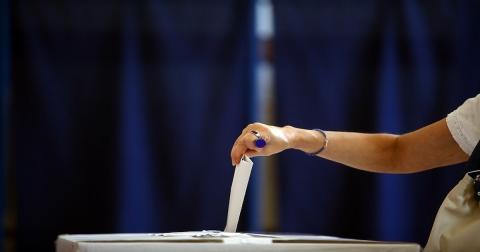The Oregon secretary of state has verified the initial sponsorship signatures for a proposed ballot measure that would guarantee all voters and candidates have the right to participate in the state’s publicly-funded primary elections.
In the past, primary reform in Oregon has hit multiple roadblocks – particularly pushback from the two major parties. However, Oregon Open Primaries has introduced a unique initiative that would force the state to adopt a more equitable primary process.
Oregon is one of only 9 states that has a purely closed partisan primary system. This means the state’s taxpayer-funded primary elections bar voters and candidates not affiliated with the Republican and Democratic Parties.
Closed partisan primaries ensure that the parties choose for voters who will be on the November ballot, rather than letting all voters decide. Oregon’s primaries currently deny access to over 1 million voters (or approximately 40% of the state's electorate).
Oregon Open Primaries asserts that Oregonians at-large, including party members, agree that closed primaries have stopped working for voters, and looking at the electoral landscape, it will only disenfranchise more and more voters each election cycle.
“Non-Affiliated voters are the future trend of the electorate,” says Oregon Open Primaries’ Michael DeWolf.
“They are on pace to become the state’s largest group of voters. They have a median age that is 15 years younger than their major party counterparts, and they are a growing force in all parts of the state - urban and rural, liberal and conservative, west and east of the Cascades.”
Reform hasn’t come easy. Ballot initiatives were proposed to open the primaries in 2008 and 2014. Both failed over content disagreements and party resistance.
Oregon Open Primaries’ latest proposal takes a different approach. It does not call on a specific reform to the way primaries are conducted. It instead adds language to the Oregon Constitution to enshrine the rights to participate in primaries to all voters and candidates, regardless of party affiliation or lack thereof.
It is not a reform tactic that is commonly used. However, the group believes it is the best avenue for success.
“This citizen initiative is readily understood by all voters -- its focus on equitable access to the ballot is showing broad appeal among voters of all ages, all political persuasions, and all parts of the state,” says DeWolf.
“It sidesteps specific process reforms that may confuse voters and derail the initiative’s approval.”
Adding a “free and equal elections” section to the Oregon Constitution would force the legislature to act and reform the way primaries are conducted, because the constitution is the ultimate legal authority in the state.
“Once the initiative passes, we will be working with the reform community to propose specific statutory reforms for the legislature to consider. Every model should be on the table. Let’s have a robust discussion AFTER the state is forced to act. ” says DeWolf.
Open primaries advocates also understand the risks. The legislature may not act in good faith with the amendment, but there are options available to voters if this happens, including a second citizen initiative or a lawsuit to apply even more pressure on the legislature.
Oregon Open Primaries has to collect over 150,000 signatures to certify their measure for the November ballot. It is a grand feat for a small grassroots organization to accomplish. However, the group is optimistic.
For now, the measure is headed to the Oregon Department of Justice to be given a ballot title. The department has until March 22 to draft the title.
